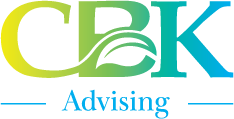Please Don’t Kick The Dog

By Karen D. Nutter, Executive Coach
When the poop hits the fan and everything seems to be challenging your sanity, it’s very common for people to “kick the dog.” If you’re not familiar with the term, “Kicking the dog” refers to displaced aggression towards others such as employees, co-workers, friends, or family members. Years ago, I had a boss who first explained the concept through a story…
A man wakes up one morning and finds his refrigerator stopped working, so all his food has spoiled and he doesn’t get his breakfast. As a result, he goes to work hungry and grumpy. When he gets to work, he yells at his administrative assistant because he can’t find the report he was working on. Even though it’s not her fault, the assistant, who was having a good day until that point, gets upset. She starts frantically looking through the computer files for the report, but then her computer freezes up. She calls the IT guy and yells at him to “fix this hunk of junk or else!” The IT guy glares at her and swears under his breath, but gets everything running and back to normal by the end of the day. He goes home, still fuming about being yelled at in front of the whole office. When he opens the door, his dog, Barkley, is excited to see him and jumps up on him, making him drop everything he was carrying. Angry about work and unable to accurately see the love and loyalty his dog was giving, he takes out his anger on Barkley. And Barkley slinks off to hide under the bed.
Stress has a way of bringing out the worst in us. So, right now, while most everyone is dealing with numerous stressors, it’s likely there is a lot of kicking going on – especially at the people we are most comfortable working and living with. The more comfortable and casual we feel with someone, the less we filter our thoughts, words, and behaviors. In fact, it may be that we feel so comfortable, so secure in the relationship, that we no longer think about how our actions may affect them.
Balancing On One Foot
I hate to sound like a broken record, but one of the best things you can do to keep from over-reacting is to get in touch with your emotions, and develop your emotional intelligence. Learning how to regulate your thoughts, emotions, and actions will help you overcome the kicking response.
Engaging your EQ doesn’t mean you stop feeling emotions – that’s never a healthy solution. Emotional intelligence is about identifying where your feelings are coming from when you’re feeling out of sorts. Then, consciously regulating your behaviors to ensure you don’t do or say something you’ll regret.
When you first start engaging your EQ, you may feel unsteady, like you’re balancing on one foot. But, the more you practice, the more second-nature it becomes. Through self-awareness, you become aware of your emotions and the behaviors they trigger. And since our emotions directly impact our mood and how we interact with others, strengthening your self-awareness is a critical first step in personal and professional development.
Chasing Your Own Tail
Aside from the fact that you never want to take out your frustrations on innocent bystanders, especially those who are loyal and care about you, the biggest problem with “kicking the dog” is that it usually results in getting bit, thereby adding to the cycle of stress and aggression. The longer the cycle continues, the more disruptive for everyone involved. This cycle of negativity is like chasing your own tail – it never really gets you anywhere and you just end up hurting yourself in the end. And if it goes on for too long, there’s a good chance that eventually even your most loyal supporters will run away.
However, once you have self-awareness, engaging in self-regulation will help you manage your feelings and behaviors so you can control disruptive impulses. In my experience, good self-regulation usually starts with a pause. Taking time to stop, breathe, and then respond can keep you from setting off a chain reaction of negative emotions in others.
Rewarding Behaviors
Sometimes, the “dog days” just jump up on you without warning and you find you already kicked the dog, and now you aren’t sure how to fix the situation and smooth things out. Fortunately, one of the most rewarding behaviors – for you and them – is pretty simple: apologize. Saying those magic words,” I’m sorry” can diffuse even the hottest tempers. Make sure your apology is genuine, and it helps if you take responsibility for your bad behavior and sincerely try not to repeat it. Most people don’t enjoy living with ongoing tension, so they value, respect and trust those who manage their behaviors harmoniously.
Right now, there’s a good chance that most of the people you know and work with are struggling with the many challenges facing our society. So, rather than kicking the dog, practice self-awareness and self-regulation. And, if you’re the dog being kicked, think about how today’s challenges may be affecting them, and engage another important characteristic of EQ – empathy.
Have you been “kicking the dog” lately?
EQ workshops, training, and coaching are available for individuals, teams, and organizations. Contact us for more information.

